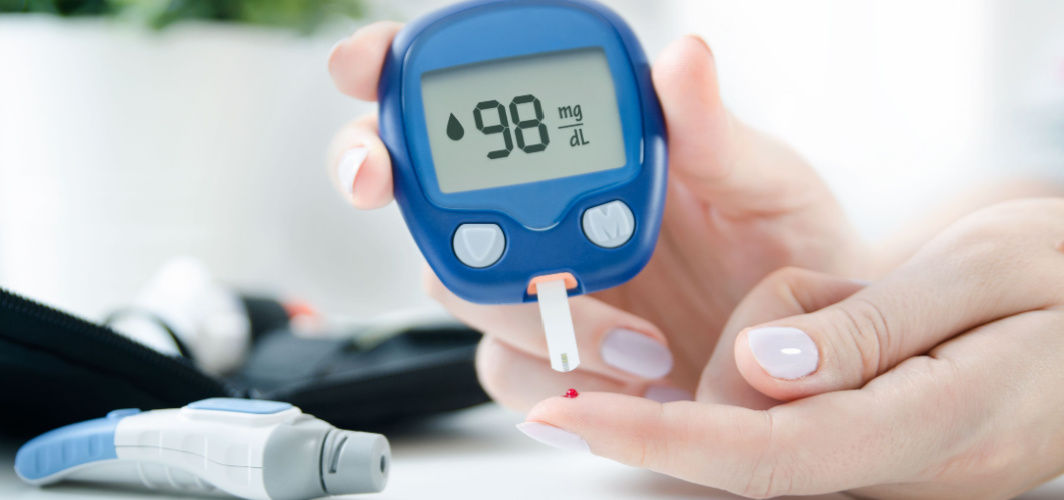Diabetes Management
Blood Sugar Monitoring: Is it Important?
3 min read
By Apollo 24|7, Published on - 13 September 2023, Updated on - 14 September 2023
Share this article
0
0 like

Blood sugar monitoring is a critical aspect of managing your health, especially if you have diabetes or are at risk of developing it. This practice involves regularly measuring your blood glucose levels to understand how your body processes sugar. In this blog, we'll delve into the significance of blood sugar monitoring, its impact on your overall well-being, and why it's vital to make it a part of your routine.
What is Blood Sugar?
Before we explore the importance of blood sugar monitoring, let's understand what blood sugar (glucose) is and why it matters. Glucose is a type of sugar that comes from the food we eat and serves as a primary energy source for our cells. However, too much or too little glucose in the bloodstream can lead to health issues.
Why Is Blood Sugar Monitoring Important?
Blood sugar monitoring is important for gaining insights about your overall health and to help you make informed decisions about your diet, medication and lifestyle choices.
- Personalized Management: Monitoring allows you to understand how your body responds to food, physical activity, medication, and other factors. This knowledge enables you and your healthcare provider to create a personalized diabetes management plan.
- Preventing Complications: High blood sugar levels over time can lead to serious complications such as heart disease, kidney problems, nerve damage, and vision impairment. Monitoring helps you take timely action to prevent these issues.
- Adjusting Medication: If you're on diabetes medication, monitoring helps you and your healthcare provider determine if your current treatment plan is effective. Adjustments can be made if necessary to maintain optimal blood sugar levels.
- Lifestyle Modification: Blood sugar monitoring provides insights into the impact of your lifestyle choices. You can make informed decisions about your diet, exercise routine, and stress management to better control your blood sugar.
Quality of Life:
- Stable blood sugar levels contribute to an improved quality of life.
- You'll have more energy, experience fewer fluctuations in mood and energy, and reduce the risk of diabetes-related complications that can diminish your well-being.
Incorporating Blood Sugar Monitoring into Your Routine
To make blood sugar monitoring a seamless part of your life:
- Invest in a Glucometer: Purchase a reliable glucometer and test strips for at-home monitoring.
- Follow a Schedule: Work with your healthcare provider to establish a testing schedule that suits your needs.
- Record and Analyze Results: Keep a record of your blood sugar readings and share them with your healthcare team for better guidance.
Conclusion
Blood sugar monitoring is a powerful tool for taking control of your health. By regularly monitoring your blood sugar levels, you can detect issues early, personalize your management plan, prevent complications, and lead a healthier, more fulfilling life.
Diabetes Management
Leave Comment
Recommended for you

Diabetes Management
Can Diabetes Affect Your Recovery?
Diabetes can influence the recovery process, causing delayed healing, heightened infection risks, and surgical complications due to impaired blood circulation and immune function. Additionally, neuropathy can complicate pain management, and diabetes-related comorbidities can extend recovery times. Effective diabetes management, including blood sugar control and a healthy lifestyle, is essential for improving recovery outcomes. Elevated blood sugar levels in diabetes affect the body's natural healing mechanisms by limiting nutrient and oxygen flow, hindering the immune system, and promoting inflammation within cells.

Diabetes Management
Type 1 Diabetes In Children: Is Insulin Safe For Kids?
The common signs and symptoms of type 1 diabetes or juvenile diabetes include excessive thirst, frequent urination, increased hunger, unexplained weight loss, blurred vision, slow wound healing, and recurring infections like yeast infections. These symptoms indicate the need for medical evaluation and potential diagnosis of type 1 diabetes. In such cases, it is best to consult a diabetologist without delay.

Diabetes Management
How To Prevent Diabetes During Pregancy?
Learn about effective strategies and lifestyle factors to prevent diabetes during pregnancy. Discover the latest guidelines, new technologies and expert advice on managing gestational diabetes.
Subscribe
Sign up for our free Health Library Daily Newsletter
Get doctor-approved health tips, news, and more.
Visual Stories

8 Fruits That are Incredibly Healthy for Diabetes
Tap to continue exploring
Recommended for you

Diabetes Management
Can Diabetes Affect Your Recovery?
Diabetes can influence the recovery process, causing delayed healing, heightened infection risks, and surgical complications due to impaired blood circulation and immune function. Additionally, neuropathy can complicate pain management, and diabetes-related comorbidities can extend recovery times. Effective diabetes management, including blood sugar control and a healthy lifestyle, is essential for improving recovery outcomes. Elevated blood sugar levels in diabetes affect the body's natural healing mechanisms by limiting nutrient and oxygen flow, hindering the immune system, and promoting inflammation within cells.

Diabetes Management
Type 1 Diabetes In Children: Is Insulin Safe For Kids?
The common signs and symptoms of type 1 diabetes or juvenile diabetes include excessive thirst, frequent urination, increased hunger, unexplained weight loss, blurred vision, slow wound healing, and recurring infections like yeast infections. These symptoms indicate the need for medical evaluation and potential diagnosis of type 1 diabetes. In such cases, it is best to consult a diabetologist without delay.

Diabetes Management
How To Prevent Diabetes During Pregancy?
Learn about effective strategies and lifestyle factors to prevent diabetes during pregnancy. Discover the latest guidelines, new technologies and expert advice on managing gestational diabetes.